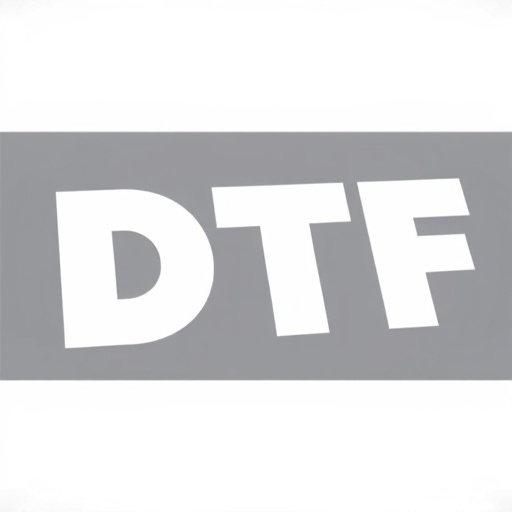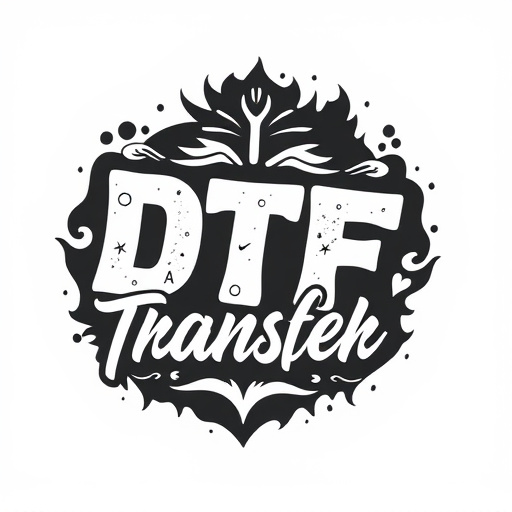Mastering DTF: Expert Production for Commercial Clients and Future Trends
Direct-to-Film (DTF) transfer printing is a cutting-edge commercial printing method that offers spee…….
In today’s fast-paced and increasingly digital global economy, professional DTF (Demand, Supply, and Fulfillment) services have emerged as a cornerstone of modern business operations. This intricate web of interconnected processes facilitates the efficient management of resources, meeting market demands, and optimizing supply chains worldwide. This article aims to delve into the world of professional DTF services, exploring its various facets, global impact, economic significance, technological innovations, regulatory landscape, challenges, and future prospects. By providing a comprehensive guide, readers will gain valuable insights into this dynamic field, enabling them to navigate the complexities and capitalize on the opportunities it presents.
Professional DTF services encompass a suite of strategies and practices designed to streamline the process from identifying market demands (Demand) to delivering products or services (Fulfillment). It involves a delicate balance between understanding customer needs, managing supplier networks, optimizing production processes, and ensuring efficient distribution. The ‘Supply’ aspect focuses on sourcing raw materials, components, or goods from suppliers, considering factors like quality, cost, and lead times.
Historically, DTF services have evolved alongside advancements in technology and globalization. With the rise of e-commerce and digital platforms, businesses now require robust systems to manage complex supply chains effectively. Professional DTF services fill this gap by offering specialized expertise and customized solutions tailored to meet individual business requirements. These services are particularly valuable for small and medium-sized enterprises (SMEs) that may lack the resources or in-house capabilities to handle intricate logistics.
Key Components:
The impact of professional DTF services is felt across the globe, with significant variations in their adoption and implementation. Developed countries, such as North America, Western Europe, and Japan, have traditionally been early adopters, leveraging advanced technologies and sophisticated supply chain management practices. These regions benefit from robust infrastructure, well-established legal frameworks, and a highly skilled workforce, enabling efficient DTF service delivery.
Emerging markets, however, are not far behind in embracing these services. Countries like China, India, and Brazil have witnessed rapid industrialization and economic growth, making them significant players in global supply chains. These regions offer cost advantages and a vast talent pool, attracting foreign investments and fostering the development of professional DTF services to meet domestic and international demands.
Global Trends:
The professional DTF service industry is a significant contributor to global economic activity, influencing various sectors and employment opportunities. According to a recent report by [Industry Source], the worldwide market size for DTF services was valued at USD 500 billion in 2021 and is projected to grow at a CAGR of 7% from 2022 to 2030. This growth can be attributed to several economic factors:
Market Dynamics:
| Factor | Impact |
| —— | —— |
| Supply Chain Length | Longer supply chains often result in higher costs and complexities, driving the need for specialized DTF services. |
| Market Competition | Intense competition among businesses can lead to price wars, making efficient supply chain management crucial for survival. |
| Technological Advancements | Automation and digital solutions reduce labor costs and improve productivity, benefiting DTF service providers. |
Technology is at the heart of professional DTF services’ evolution, enabling providers to offer innovative solutions and stay ahead in a competitive market. Here are some key technological trends shaping the industry:
Professional DTF service providers must navigate a complex web of regulations to ensure compliance and mitigate legal risks. The regulatory environment varies across regions, influenced by local laws, international trade agreements, and industry standards. Key considerations include:
Despite its numerous benefits, the professional DTF service industry faces several challenges that providers must address to maintain a competitive edge.
To overcome these challenges, service providers should consider the following strategies:
The professional DTF service industry is poised for further growth and transformation as technology continues to evolve and global market dynamics change. Here are some key trends shaping its future:
Professional DTF services play a pivotal role in shaping the global economy, enabling businesses to thrive in an increasingly complex and dynamic market. By understanding the core principles, embracing technological advancements, navigating regulatory environments, and addressing challenges head-on, service providers can position themselves for sustainable growth. The future of this industry promises exciting possibilities, with technology at its forefront, reshaping supply chains into lean, efficient, and eco-conscious operations.

Direct-to-Film (DTF) transfer printing is a cutting-edge commercial printing method that offers spee…….

Direct-to-Film (DTF) transfer technology has revolutionized commercial printing by eliminating inter…….

Direct-to-film (DTF) printing is a cutting-edge technology in commercial printing, delivering high-q…….

Direct-to-film (DTF) printing is a revolutionary commercial imaging technology offering high-quality…….

Direct-to-film (DTF) printing is a cutting-edge commercial solution offering superior print quality…….

Direct-to-film (DTF) printing is a revolutionary technology for commercial production, enabling high…….

Direct-to-film (DTF) printing is a cutting-edge technique offering high-quality, permanent printing…….

Direct-to-Film (DTF) transfer is a cutting-edge process that allows commercial clients to reproduce…….

Direct-to-Film (DTF) production is a cutting-edge method transforming commercial visual content crea…….

DTF Printing (Direct-to-Film) is revolutionizing commercial visual marketing by offering swift, vers…….